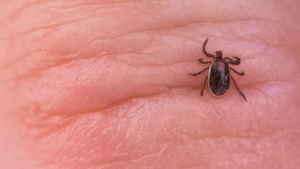For many, the day doesn't truly begin without a caffeinated beverage. Tea and coffee stand out as the two most popular choices worldwide, each boasting distinct flavors, cultural significance, and a spectrum of health benefits. Whether you're devoted to coffee's robust kick or prefer the gentle embrace of tea, understanding how these morning drinks affect your body can empower you to make informed decisions about your daily habit.

Both coffee and tea are abundant in antioxidants, which can provide support for your brain, heart, and immune system, while also boosting your metabolism. The ideal selection hinges on your personal caffeine sensitivity, health requirements, and desired energy levels. The key is to notice how each drink affects you. Whether you gravitate towards the assertive jolt of coffee or the calming stimulation of tea, both can play a role in a healthy lifestyle when consumed thoughtfully, adapting to your individual needs and reactions.
Tea is crafted by steeping the dried leaves of the Camellia sinensis plant. Various types, such as green tea, black tea, and white tea, are produced through different methods of fermentation and drying. Key components of tea include:
Coffee is brewed from roasted and ground coffee beans. Its composition varies depending on the brewing method, roasting level, and grinding process. Key components of coffee include:
Tea offers several compounds that can promote your health. These include:
Varieties such as green, white, and oolong teas present specific advantages linked to their processing techniques. Herbal teas, utilizing seeds, roots, and fruits, offer diverse health benefits.
Coffee provides numerous long-term health advantages. These include:
While generally safe when consumed in moderation, excessive intake of both tea and coffee can trigger adverse effects.
Coffee may cause side effects, including:
The severity of these side effects can differ significantly from person to person, depending largely on individual caffeine sensitivity and the amount consumed.
Tea poses fewer risks when consumed in moderation. However, it's important to remember that tea does contain caffeine, albeit typically less than coffee. The levels of caffeine will depend on the specific type of tea.
Methods of preparing tea:
Methods of preparing coffee:
Newer articles
Older articles
 Vijay Officially Named TVK's Chief Minister Hopeful for Tamil Nadu's 2026 Election
Vijay Officially Named TVK's Chief Minister Hopeful for Tamil Nadu's 2026 Election
 RJ Mahvash Prioritizes Work Over Buzz, Addresses Link-Up Speculation
RJ Mahvash Prioritizes Work Over Buzz, Addresses Link-Up Speculation
 UNESCO's World Heritage Wonders: Unveiling 10 Iconic Sites, From Petra to the Pyramids
UNESCO's World Heritage Wonders: Unveiling 10 Iconic Sites, From Petra to the Pyramids
 JPG to PDF: A Comprehensive Guide for Graphic Designers & Professionals
JPG to PDF: A Comprehensive Guide for Graphic Designers & Professionals
 iQoo Z9 Turbo: Rumored Specs Emerge – Snapdragon 8s Gen 3, 6000mAh Battery Highlighted
iQoo Z9 Turbo: Rumored Specs Emerge – Snapdragon 8s Gen 3, 6000mAh Battery Highlighted
 Shadman Islam Defends Bangladesh Batters After Day 1 Struggles Against Sri Lanka
Shadman Islam Defends Bangladesh Batters After Day 1 Struggles Against Sri Lanka
 England's Bold Claim: Could They Have Chased Down 450 Against India?
England's Bold Claim: Could They Have Chased Down 450 Against India?
 5 Often-Missed Warning Signs of Bladder Cancer You Need to Know
5 Often-Missed Warning Signs of Bladder Cancer You Need to Know
 KL Rahul Puts Country First, Prioritizes England Tests Over Newborn Child
KL Rahul Puts Country First, Prioritizes England Tests Over Newborn Child
 Tick Bite Paralyzes Fitness Influencer: A Wake-Up Call for Outdoor Enthusiasts
Tick Bite Paralyzes Fitness Influencer: A Wake-Up Call for Outdoor Enthusiasts